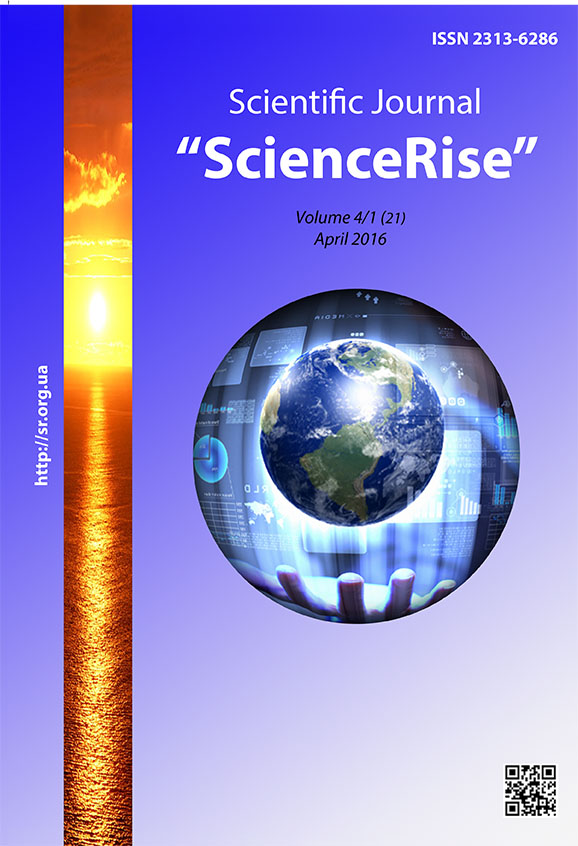Марк Аврелий и идея апофеоза в античной картине мира
DOI:
https://doi.org/10.15587/2313-8416.2016.67547Ключові слова:
Марк Аврелий, апофеоз, божественность, стоицизм, душа, смерть, бессмертие, античная философияАнотація
Идея посмертного апофеоза хороших правителей представляла собой важную часть религиозного сознания античного мира. Божественный Марк Аврелий не верил в бессмертие души, что не мешало ему руководить процессом обожествления своих близких. В статье идет речь как о неявных мотивах этого императора, так и о духовных паттернах его эпохи
Посилання
Gibbon, E. (1853). The History of the Decline and Fall of the Roman Empire. Vol. I. London: Henry G. Bohn, 522.
Historia Augusta. Vol. I (1991). Cambridge, MA; London: Harvard University Press, 493.
Halapsis, A. V. (2015). On the Nature of the Gods, or Epistemological Polytheism as History Comprehension Method. Evropský filozofický a historický diskurz, 1 (1), 53–59.
Dodds, E. R. (1991). Pagan and Christian in an Age of Anxiety: Some Aspects of Religious Experience from Marcus Aurelius to Constantine. Cambridge, UK: Cambridge University Press, 164.
Forstater, M. (2000). The Spiritual Teachings of Marcus Aurelius. New York: HarperCollins Publishers, 268.
Hadot, P. (1998).The Inner Citadel: The Meditations of Marcus Aurelius. Cambridge, MA; London: Harvard University Press, 351.
Rutherford, R. B. (1989). The Meditations of Marcus Aurelius: A Study. Oxford; New York: Clarendon Press, 282.
Sellars, J. (2012). The Meditations and the Ancient Art of Living. van Ackeren/A Companion to Marcus Aurelius. Chichester, West Sussex, UK: Wiley-Blackwell, 453–464. doi: 10.1002/9781118219836.ch29
Stróżyński, M. (2014). Filozofia jako terapia w pismach Marka Aureliusza, Plotyna i Augustyna [Philosophy as therapy in the works of Marcus Aurelius, Plotinus and Augustine]. Poznań: Wydawnictwo Naukowe Uniwersytetu im. Adama Mickiewicza, 256.
Belliotti, R. A. (2009). Roman Philosophy and the Good Life. Lanham, MD: Lexington Books, 248.
Kovács, P. (2009). Marcus Aurelius’ Rain Miracle and the Marcomannic Wars. Leiden; Boston, MA: Brill, 301.
Antonin, M. A. (1985). Razmyshleniya [Meditations]. Leningrad: Nauka, 245.
Halapsis, A. V. (2015). Urbis et Orbis: Non-Euclidean Space of History. Evropský filozofický a historický diskurz, 1 (2), 37–42.
Chlegel, C. M., Weinfield, H. (2006). Hesiod: Theogony and Works and Days. Ann Arbor: University of Michigan Press, 116.
Lucian (1962). The Works. Vol. V. London; Cambridge, MA: William Heinemann; Harvard University Press, 537.
Halapsis, A. V. (2014). Iovem Imperium, or Sacred Aspects of Roman Globalization. Scientific cognition: methodology and technology, 33 (2), 173–178.
Ovid (1958). Metamorphoses. Vol. II. London; Cambridge, MA: William Heinemann; Harvard University Press, 500.
Plato (1942). Republic. Vol. II. Cambridge, MA; London: Harvard University Press; William Heinemann, 539.
Servius, M. H. (1826). Commentarii in Virgilium. Vol. I. Gottingae: Vandenhoeck et Ruprecht, 593.
Walz, M. D. (2011). Stoicism as Anesthesia. International Philosophical Quarterly, 51 (4), 501–519. doi: 10.5840/ipq201151451
##submission.downloads##
Опубліковано
Номер
Розділ
Ліцензія
Авторське право (c) 2016 Алексей Владиславович Халапсис

Ця робота ліцензується відповідно до Creative Commons Attribution 4.0 International License.
Наше видання використовує положення про авторські права Creative Commons CC BY для журналів відкритого доступу.
Автори, які публікуються у цьому журналі, погоджуються з наступними умовами:
1. Автори залишають за собою право на авторство своєї роботи та передають журналу право першої публікації цієї роботи на умовах ліцензії Creative Commons CC BY, котра дозволяє іншим особам вільно розповсюджувати опубліковану роботу з обов'язковим посиланням на авторів оригінальної роботи та першу публікацію роботи у цьому журналі.
2. Автори мають право укладати самостійні додаткові угоди щодо неексклюзивного розповсюдження роботи у тому вигляді, в якому вона була опублікована цим журналом (наприклад, розміщувати роботу в електронному сховищі установи або публікувати у складі монографії), за умови збереження посилання на першу публікацію роботи у цьому журналі.

